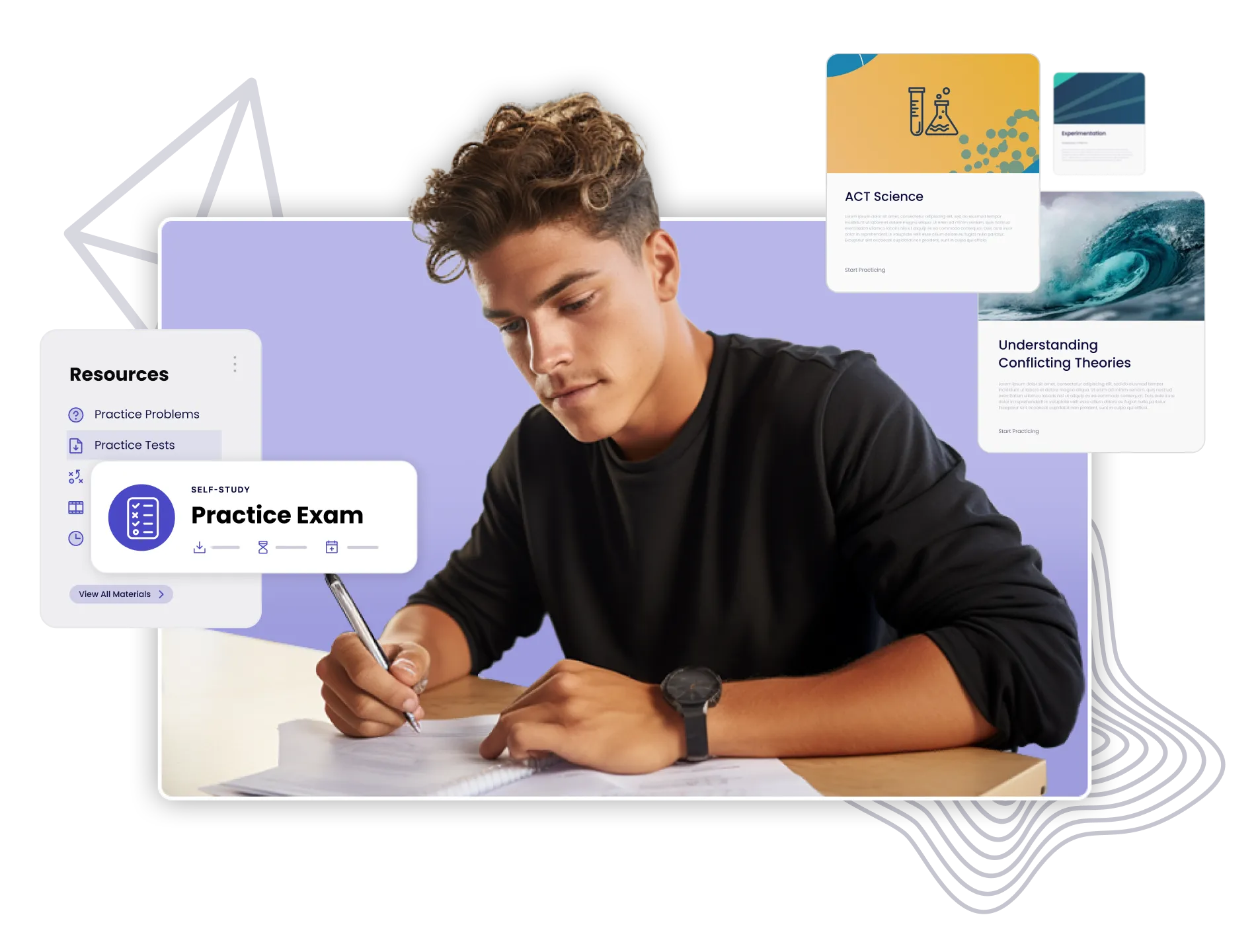What is it Like to Attend University of Massachusetts Boston?

The tutors behind Varsity Tutors are not just here to teach – they’re sharing their college experiences as well. Samantha is a Boston tutor specializing in Elementary Math tutoring, Middle School Math tutoring, Biology tutoring, Writing tutoring, and more. She is a 2013 graduate of University of Massachusetts Boston and holds a Bachelor’s degree in both Biology and in Exercise and Health Sciences. See what she had to say about her alma mater:
VT: Describe the campus setting and transportation options. How urban or safe is the campus? Are there buses or do you need a car/bike?
Samantha: The campus is located on a peninsula in South Boston. There are ocean views from almost every building on the campus and even some of the classrooms! Each building is connected to the other via a catwalk – this makes getting from class to class, regardless of the weather or time, completely manageable.
The campus is easily accessible by car (right off a few main highways), bus, or the subway. The campus itself is very safe. Some of the surrounding areas of Dorchester are less safe late at night, but in my time at UMass Boston, I never felt unsafe arriving or leaving campus, and most certainly never felt unsafe on the campus itself.
Many students ride their bikes to school. There is also a Hubway station directly in front of the main Campus Center building. Most students use public transportation or drive. Parking can be a bit of an issue if you arrive in the afternoon for class due to the construction, but shuttles are available to students who have to park in the lots furthest from the campus.
VT: How available are the professors, academic advisers, and teaching assistants?
Samantha: All of the professors have required office hours and are almost always open to schedule appointments around your availability. The trouble isn’t the availability of professors for the students, it’s the courage and drive of the students to seek out the help, guidance, and support of those professors. Establishing connections with professors can make an incredible difference in your academic experience and success; I highly encourage it. Academic advisers are not the strongest at UMass Boston, but have definitely improved over the years. The teaching assistants are usually graduate students at the university. Many of them share the same enthusiasm as you for the classes that you are taking, and the fact that they are recent undergraduates and close to your age is very welcoming.
VT: How would you describe the dorm life – rooms, dining options, location, socialization opportunities with other students?
Samantha: UMass Boston is predominately a commuter school and does not have dorms. There are local housing communities and apartments that some students live in within a 5-minute walk to campus. I commuted for my first few years of school, but spent my senior year living on campus and absolutely loved it. The housing is beautiful and many have ocean views, although it is very pricey given the location! However, if you are looking to avoid typical “dorm-life experience,” it’s a great alternative.
There is only one full main cafeteria on campus, which can get very busy, but has great options for food. As far as I know, there is no set meal plan like many other schools with housing, but there are loadable cards available that work like cash for easy purchases. I do believe hours of operation of the cafeteria and coffee shops on campus could and should be extended to accommodate those who study late!
VT: Which majors/programs are best represented and supported? What did you study and why? Did the university do a good job supporting your particular area of study?
Samantha: I graduated with a BS in Exercise and Health Sciences from the College of Nursing and Health Sciences and a BS in Biology from the College of Science and Mathematics. During my time at UMB and interactions with students and faculty from those two colleges, I gained an immense amount of experience in varying backgrounds, all of which gave me the courage to pursue my hopes and dreams of being a physician. UMB has an overwhelming number of opportunities for research and has established connections with many local organizations, companies, hospitals, and other educational organizations.
I don’t believe one program is remarkably more successful than the others, but the Business, Psychology, Health Sciences, and Biological Sciences are the most popular. The curriculum at this research-based public university is rigorous, but incredibly rewarding and valuable. The university did a wonderful job supporting my particular areas of study!
VT: How easy or difficult was it for you to meet people and make friends as a freshman? Does Greek life play a significant role in the campus social life?
Samantha: I will be honest and say that at the start of my undergraduate career at UMass Boston, it was difficult to make friends due to the large number of commuter students. The orientation programs at the university over the past five years have dramatically improved to address this issue and have seen immeasurable success.
Greek life does not play a large role on the UMB campus; in fact, it’s currently almost non-existent. However, I was the Founding Secretary and then President of Phi Delta Epsilon, a Professional International Co-ed Medical Fraternity. The MA Alpha Chapter of PhiDE established at UMB is the first in New England and now has over 65 members, all pre-med future physicians. It was by far my most memorable and influential experience as an undergrad and I became a part of a family that still continues to inspire me and support me. Through starting and leading the fraternity, I established relationships and connections with many faculty and staff members as well as physicians. I also communicated with local organizations for fundraising opportunities as well as with other chapters of the fraternity, both nationally and internationally.
VT: How helpful is the Career Center and other student support services? Do many reputable companies recruit on campus?
Samantha: UMass Boston has an area called “The One Stop” which serves as the area where most of the logistical issues of undergrads can be resolved. They try to ensure that any adjustments, changes, or additions that need to be made to your records can be addressed in that one spot to avoid confusion. The financial aid, bursars, and other student life offices are all in the same building on different floors, allowing for little leg-work to solve any issues that arise.
VT: How are the various study areas such as libraries, the student union, and dorm lounges? Are they over-crowded, easily available, spacious?
Samantha: There are beautiful places to study in the main campus center building, but they fill up quickly. The library tends to be over-crowded, as most would be, around typical exam weeks throughout the semester, but for the most part there is ample space. There are many computers and desks in the library. There is also a floor designated for silent study, which is strictly enforced, and there is always space there. I have never experienced a time where I felt I had to leave campus in order to study effectively, but there are times when you have to scope out a few different spots around the campus to find space.
VT: Describe the surrounding town. What kinds of outside establishments / things to do are there that make it fun, boring, or somewhere in between? To what extent do students go to the downtown area of the city versus staying near campus?
Samantha: Being a short t-ride away from the heart of Boston eliminates the “boring” aspect that some rural colleges can present. If the city is not for you, there is a large mall, many shopping centers, restaurants, and other attractions within a 15-minute drive. Many students go to Boston Bowl, which is five minutes from campus and open 24 hours. The location is beautiful and very close to Boston, one of the best cities in the country! Depending on the type of person and student you are, you will find others who stay local and others who like to venture to the city!
VT: How big or small is the student body? Were you generally pleased or displeased with the typical class sizes?
Samantha: UMass Boston has grown significantly over the past few years. It has the second largest campus in the UMass system and over 16,000 undergraduate and graduate students. Although the schools demographics deem it to be large, UMass Boston has an extremely homey and welcoming feel. I was generally pleased with the typical class sizes. Many of my introductory level science courses contained a couple hundred students in a large lecture hall, but each was supplemented with a discussion and laboratory section to introduce a more focused and teamwork-based learning environment.
VT: Describe one memorable experience with a professor and/or class. Perhaps one you loved the most or one you regret the most.
Samantha: My most memorable professor was without a doubt, Dr. Robert Guimond, Professor for Anatomy & Physiology.His compassion, approachability, and encouragement are invaluable to an undergraduate student advisee. His enthusiasm and dedication to the students and the Sciences is something that is rarely encountered. A person and a professor like Dr. Guimond can completely change an undergraduate’s experience for the better, as it did mine.
Anatomy & Physiology as a class showed me my true passion and ignited my love of collaborative learning. I had never realized how truly amazing and intelligent the human body is until I took A+P. A+P opened my eyes to a style of teaching that relied strictly on true learning and understanding of the material. It took time, organization, patience, and determination to succeed. There were no slides to cram, or ways to cut corners. It truly separated the men from the mice and I found it to be extremely exciting and inspiring.
Check out Samantha’s tutoring profile.
The views expressed in this article do not necessarily represent the views of Varsity Tutors.

